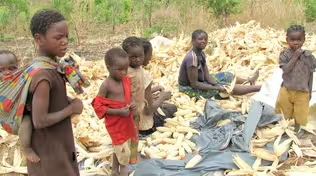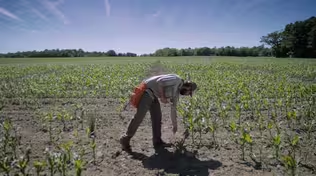
Maize | Feeding the World
Special | 7m 22sVideo has Closed Captions
Maize is also one of the most genetically diverse crops.
Maize—or “corn”—has a history dating back to the beginning of agriculture, and today is used for everything from livestock feed and human consumption, to the production of starch, sweeteners, corn oil, beverage and industrial alcohol, fuel ethanol, and plastics.
Problems playing video? | Closed Captioning Feedback
Problems playing video? | Closed Captioning Feedback
Science Specials is a local public television program presented by WSKG
This project is in partnership with the Paleontological Research Institution and funded by the National Science Foundation.

Maize | Feeding the World
Special | 7m 22sVideo has Closed Captions
Maize—or “corn”—has a history dating back to the beginning of agriculture, and today is used for everything from livestock feed and human consumption, to the production of starch, sweeteners, corn oil, beverage and industrial alcohol, fuel ethanol, and plastics.
Problems playing video? | Closed Captioning Feedback
How to Watch Science Specials
Science Specials is available to stream on pbs.org and the free PBS App, available on iPhone, Apple TV, Android TV, Android smartphones, Amazon Fire TV, Amazon Fire Tablet, Roku, Samsung Smart TV, and Vizio.
More from This Collection
Maize—or “corn”—has a history dating back to the beginning of agriculture, and today is used for everything from livestock feed and human consumption, to the production of starch, sweeteners, corn oil, beverage and industrial alcohol, fuel ethanol, and plastics.
Video has Closed Captions
There is a tremendous amount of genetic diversity in maize. (7m 23s)
Maize | Geneticist's Growing Season
Video has Closed Captions
What do scientists need to consider when growing a field of maize? (6m 56s)
Providing Support for PBS.org
Learn Moreabout PBS online sponsorshipSupport for PBS provided by:
Science Specials is a local public television program presented by WSKG
This project is in partnership with the Paleontological Research Institution and funded by the National Science Foundation.

















